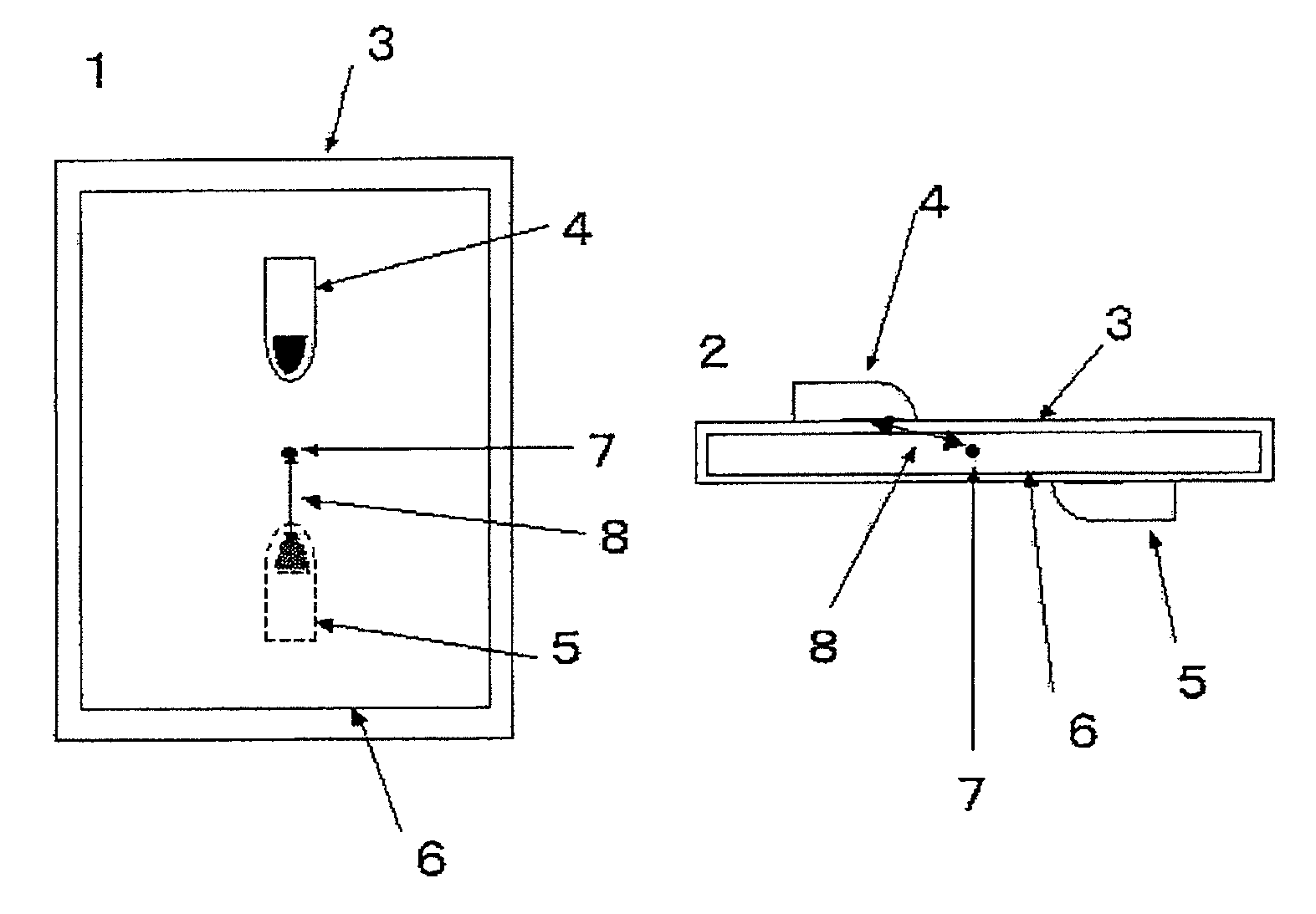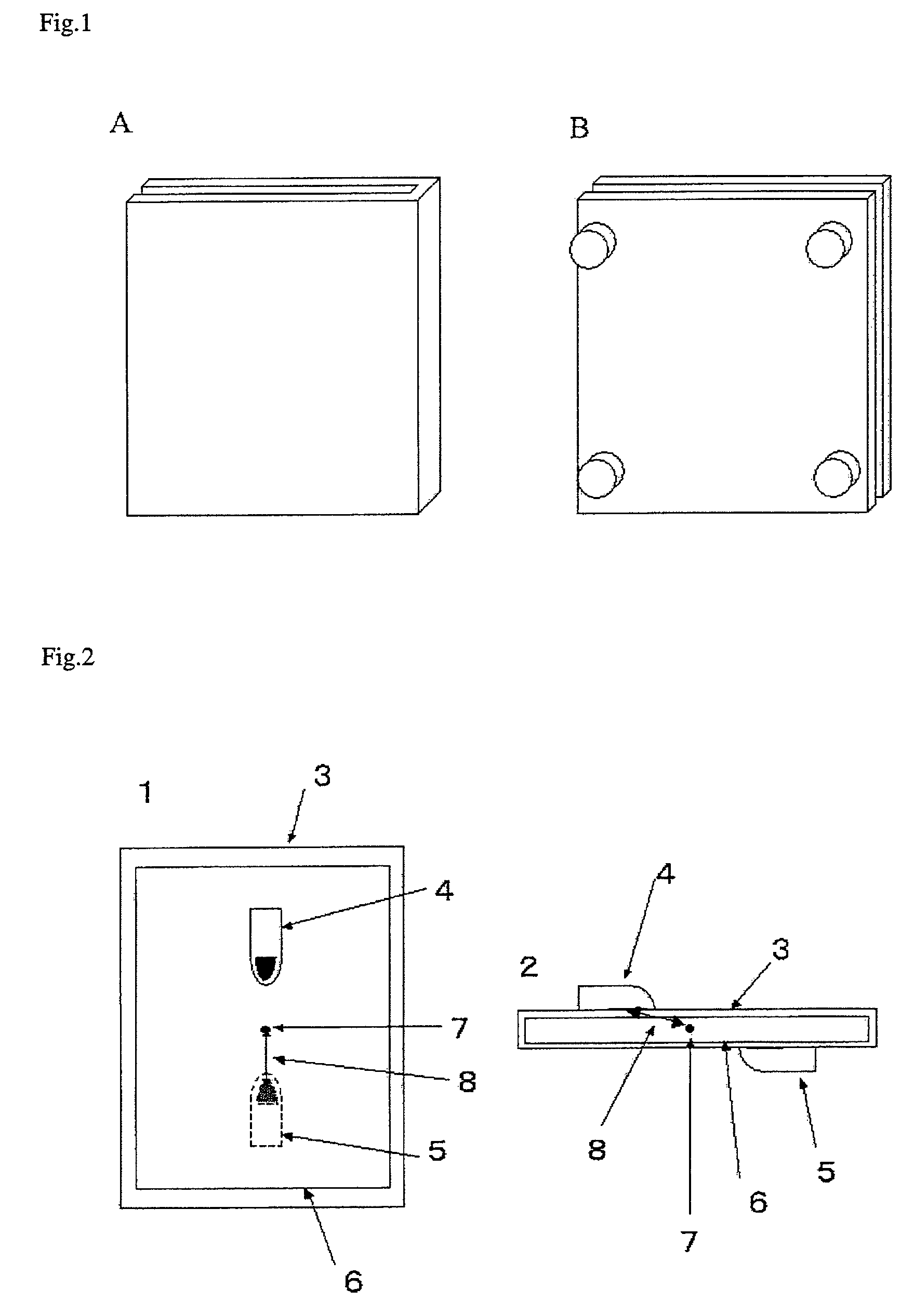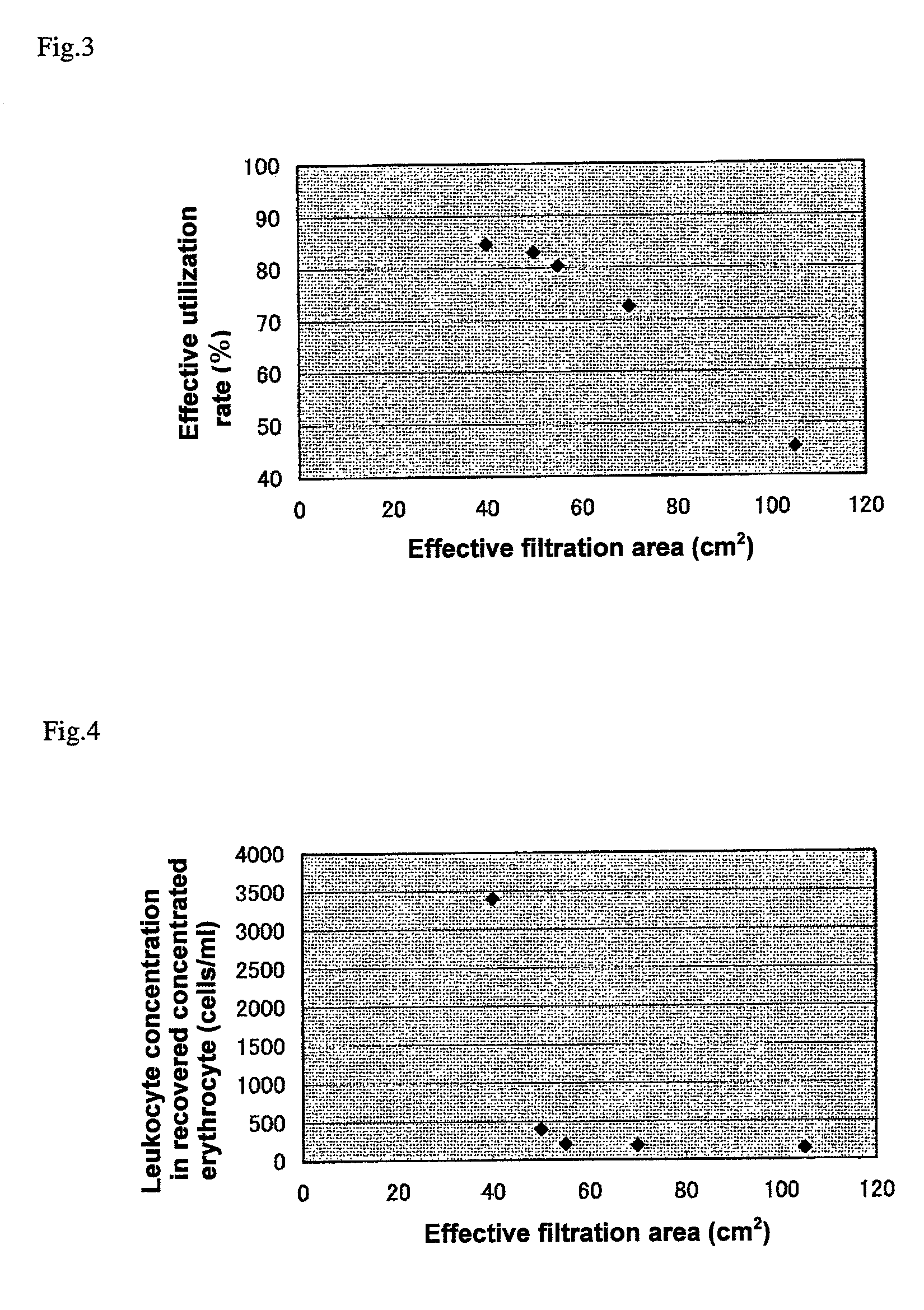Method for filtering blood or blood components using leukocyte-removing filter and filter device
a technology of leukocyte removal and filter device, which is applied in the direction of filtration separation, membranes, separation processes, etc., can solve the problems of difficult use of high-pressure vapor sterilization methods, affecting the efficiency of filtration, and the risk of damage to bags and tubes in hard containers, etc., to achieve efficient increase the ability of leukocyte removal and effectively utilize the filtration area
- Summary
- Abstract
- Description
- Claims
- Application Information
AI Technical Summary
Benefits of technology
Problems solved by technology
Method used
Image
Examples
example 1
[0076]An inlet port side flexible container having an inlet port of blood and an outlet port side flexible container having an outlet port of blood were prepared from a flexible sheet made of a polyvinyl chloride resin with Young's modulus of 10 N / mm2 and a thickness of 0.4 mm, in which holes with a diameter equivalent to or larger than the inner diameters of the inlet port and outlet port were made at the locations to which the inlet port and outlet port of blood were to be welded, and tubes made of polyvinyl chloride with an inner diameter of 3 mm and an outer diameter of 4.2 mm, by welding at the inlet port and outlet port by high frequency welding, respectively. The inlet port and outlet port were welded by high frequency welding to the flexible container material so that the distances from the center of the filter to the center of the inlet port and the center of the outlet port are respectively 12 mm.
[0077]Sheets of nonwoven polyester fabric described below were laminated and ...
example 2
[0089]The same experiment as in Example 1 was carried out using a leukocyte-removing filter with the same configuration as that used in Example 1 and the same volume restriction boards as in Example 1, except that the effective filtration area of the filter was 7.3×9.6=70 cm2 and the air permeability pressure drop was 393 Pa. The effective utilization rate of the leukocyte-removing filter and the leukocyte concentration of the recovered concentrated erythrocyte are shown in Table 1 and FIGS. 3 and 4.
example 3
[0090]The same experiment as in Example 1 was carried out using a leukocyte-removing filter with the same configuration as that used in Example 1 and the same volume restriction boards as in Example 1, except that the effective filtration area of the filter was 6.2×8.1=50 cm2 and the air permeability pressure drop was 550 Pa. The effective utilization rate of the leukocyte-removing filter and the leukocyte concentration of the recovered concentrated erythrocyte are shown in Table 1 and FIGS. 3 and 4.
PUM
| Property | Measurement | Unit |
|---|---|---|
| pressure | aaaaa | aaaaa |
| thickness | aaaaa | aaaaa |
| air permeability pressure drop | aaaaa | aaaaa |
Abstract
Description
Claims
Application Information
 Login to View More
Login to View More - R&D
- Intellectual Property
- Life Sciences
- Materials
- Tech Scout
- Unparalleled Data Quality
- Higher Quality Content
- 60% Fewer Hallucinations
Browse by: Latest US Patents, China's latest patents, Technical Efficacy Thesaurus, Application Domain, Technology Topic, Popular Technical Reports.
© 2025 PatSnap. All rights reserved.Legal|Privacy policy|Modern Slavery Act Transparency Statement|Sitemap|About US| Contact US: help@patsnap.com



